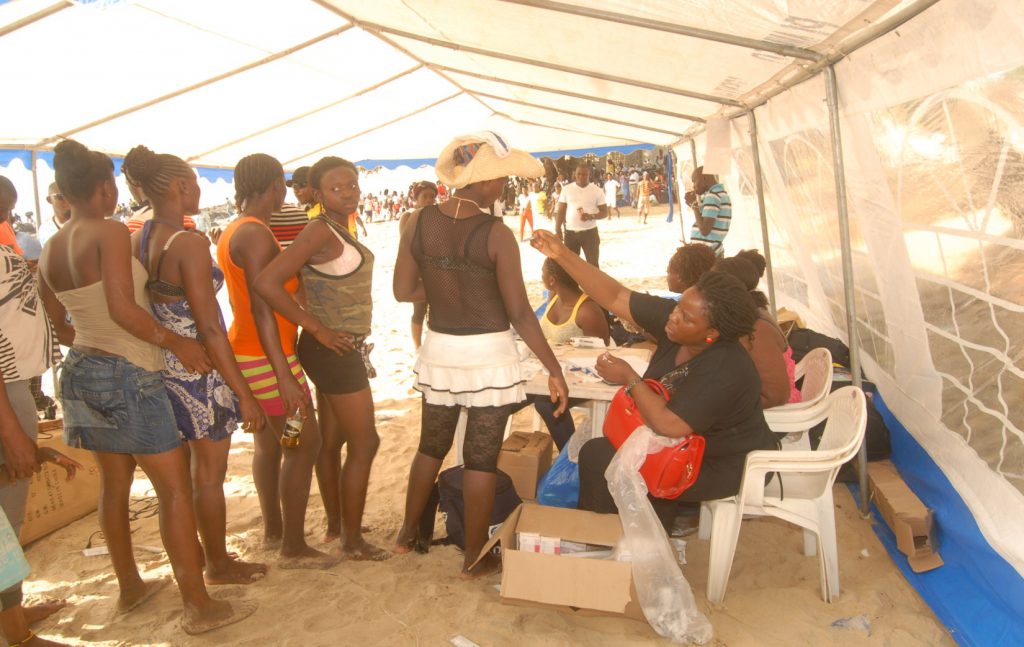Celebrating the Family Planning 2020 midway point

Family Planning 2020 (FP2020) is a global partnership that supports the rights of women and girls to decide, freely and for themselves, whether, when, and how many children they want to have. An outcome of the 2012 London Summit on Family Planning, FP2020 works with governments, civil society, multilateral organizations, donors, the private sector, and the research and development community to enable 120 million more women and girls to use contraceptives by 2020. July 11, 2016 marks FP2020’s midpoint—a pivotal moment to recognize and celebrate the incredible progress that has been made since 2012, while also acknowledging the challenges that line the path to 2020.
Committed to improving and saving lives, Bloomberg Philanthropies pledged $50 million at the London Summit to reproductive health efforts and has since worked with the Family Planning 2020 Secretariat and the UN Foundation, to establish a Rapid Response Mechanism. This grant mechanism provides funds to local organizations in 69 countries, responding to emerging, unanticipated, time-bound opportunities that will help reach the goal of 120 million additional users by 2020. Today marks the FP2020 midway point, and to celebrate we asked one of the Rapid Response Mechanism recipients to tell us about the impact the grant has had on their work.
By David Williams, Executive Director of Planned Parenthood Association of Sierra Leone
Sierra Leone is a small country in West Africa with roughly 6 million residents. According to the 2013 Demographic Health Survey, adolescents and youth constitute 55% of the total population, yet youth access to reproductive health services remains a challenge. The prevalence of child marriage is very high, and 48% of 20-24 year old females were married by age 18. Coupled with this is a high adolescent birth-rate; 4 out of 10 women give birth by their 18th birthday. 31% of women want to space or limit their births, but are not currently using a modern form of contraception (also known as “unmet need” for family planning). In fact, only 16% of married women between ages 15-49 use any form of modern contraception.
Against this backdrop of huge unmet need for family planning services, Sierra Leone experienced one of the worst outbreaks of disease in the form of Ebola Viral Disease (EVD), starting in May 2014. Although EVD has been contained as of November 7, 2015, with no new case recorded in all 14 districts, the impact of EVD—especially on women and girls—is enormously evident by the limited access to sexual and reproductive health. Whereas 0.06% of the country’s 6 million residents were killed by EVD, nearly 7% of Sierra Leone’s health care workers perished.
EVD has reversed the gains made by the efforts of the government and its partners through the Free Health Care Initiative, launched in 2010, which sought to reduce the maternal mortality rate and targeted pregnant women, lactating mothers, and children under-five years old. The Health for All Coalition, a civil society organization, released a report in September 2014 indicating that “over 485 of public health facilities have been mobilized as Ebola Holding Centres, thus preventing women and girls from access to family planning and other reproductive health services.” This resulted in distrust of the public health facilities, as it is now evident that women and girls have not been attending public health facilities in communities where EVD prevalence was high, for fear that they might contract the disease. This situation further widened the gap between those who desire family planning services and those who receive those services.
The Planned Parenthood Association of Sierra Leone (PPASL) saw the need to integrate family planning programming into the Ebola Response Initiative as a comprehensive post-Ebola recovery intervention that would restore public confidence in the health care system. PPASL worked with the government and its development partners to put together a Post Ebola Recovery Plan covering the 2015 to 2018 period. One of the recommendations in the Recovery Plan is to integrate Ebola Prevention and Control measures in all Sectoral Plans in order to protect staff, clients, and volunteers from contracting EVD whilst discharging their official duties. An important lesson learned during the EVD crisis was the necessity of integrating family planning with the Ebola Response Initiative, which is an effective and acceptable strategy to reduce unintended pregnancies in emergency public health situations. Integrating family planning ensures quality of care for the protection of both service providers and clients from EVD infection.
Bloomberg Philanthropies supported a Rapid Response Mechanism grant to amplify PPASL’s existing work in promoting and increasing access to and demand for family planning commodities and services among young people in hard-to-reach and marginalized groups. PPASL trained community based service providers, who not only provided family planning information, but also educated their communities on Ebola transmission. The community health workers issued referrals to visit PPASL’s static and outreach clinics as well as the public health facilities in the communities to receive reproductive health services.
Over the last 6 months, PPASL has served 19,448 clients with their choice of family planning method. Aside from providing much needed services to youth, this project is also important in that it seeks to rebuild public trust in using health facilities. PPASL records show that 1,000 clients have visited a public health facility, which represents a 45% increase above the number of clients visiting health facilities in the last reporting period.
If successful, this Rapid Response Mechanism grant will provide evidence that the model of integrating family planning services with Ebola recovery can be replicated nationwide in order to address the huge unmet need for family planning services and reverse negative perceptions of health facilities caused by the Ebola outbreak.